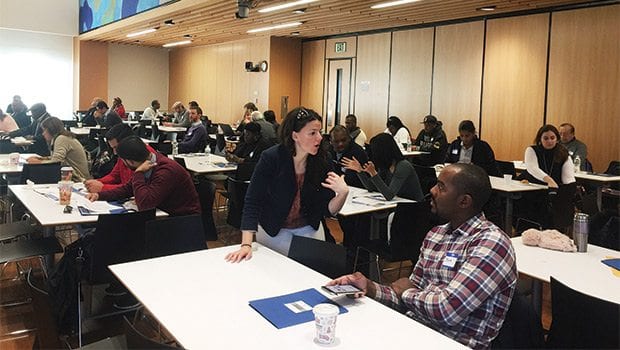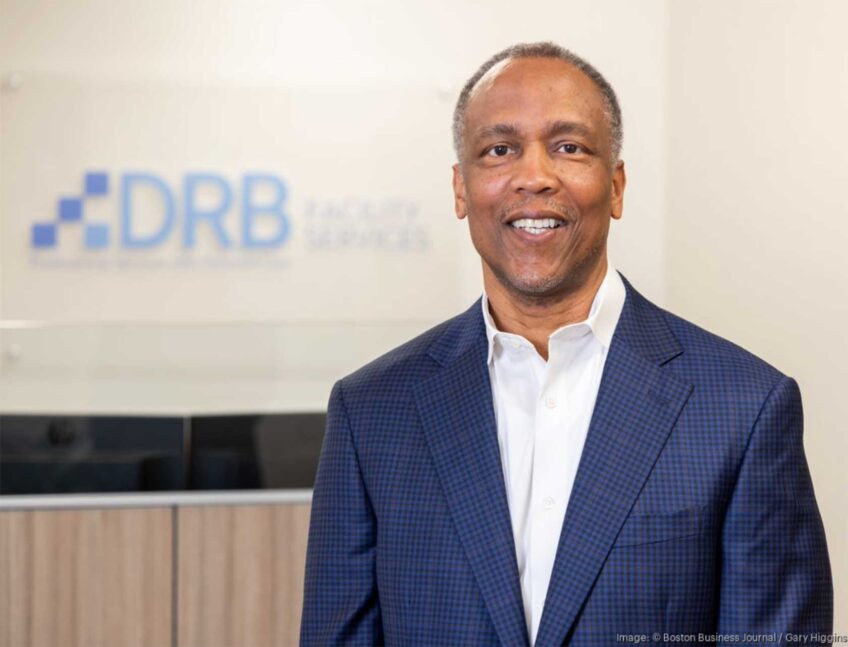Small business assistance from the city of Boston
City offers an array of programs to help local entrepreneurs

Mayor Martin J. Walsh and the Office of Economic Development aim to promote a healthy environment for businesses of all types and sizes, while fostering economic inclusion and equity. The over 40,000 small businesses in the City of Boston create jobs, wealth and opportunity for the city’s workers and residents. Small businesses also strengthen the city’s neighborhoods by providing goods and services and contributing to our social and civic life. As a critical engine of Boston’s economy, small businesses generate more than 170,000 jobs for Boston residents. Walsh has prioritized providing business owners and entrepreneurs with the tools and guidance needed to grow their bottom lines, increase capacity and thrive in a dynamic marketplace.

Karilyn Crockett
Released in March 2016, the City’s first ever Small Business Plan helps guide the Office of Economic Development’s work. This report identifies the needs of small business owners, such as direct technical assistance, including one-on-one guidance and business coaching, as well as identification of small business organizations, highlighting the importance of the City’s breadth and longstanding relationships with various business service organizations and government resources.
More than 100 small businesses have taken advantage of the Office of Economic Development’s technical assistance program since 2014. City of Boston Neighborhood Business Managers match business owners with business coaches on everything from building a sustainable business plan to creating social media profiles to increase visibility while decreasing marketing expenditures. One year after completing the program, 46 percent of businesses saw new customers and 92 percent saw increased revenue.
In January 2017, Walsh announced a city-wide small business workshop series and included workshops on contracting opportunities in Roxbury, strategic programs for immigrant business owners and entrepreneurs in East Boston, and a focus for key growth business segments designed to support smaller restaurants and retailers in Brighton.
The City of Boston’s Technical Assistance program has recently expanded to include business coaches fluent in several different languages, including Spanish, French and Arabic, and with expertise in financial management, marketing and employee-owned businesses.
Certification for small businesses
As the Walsh Administration continues to create equal opportunities for all kinds of businesses in the city of Boston, we do recognize the existing disparities among Boston businesses. For example, Boston’s population is 52 percent women, yet women-owned small business only account for 30 percent of small businesses within the City of Boston.

Author: Photo: Courtesy City of BostonSmall business owners gather at the Bolling Building in Roxbury for a certification workshop hosted by the Mayor’s Office of Economic Development and attended by City of Boston procurement liaisons.
Walsh and the City of Boston are leading by example through the Equity and Inclusion Executive Order, which requires city departments to engage women and minority-owned businesses for public contracts. To build these relationships and ensure a diverse procurement process, the Office of Economic Development convenes the top contracting departments and small businesses throughout the city for workshops for networking, training, and on-site certification.
In 2015, the City of Boston and the Commonwealth of Massachusetts formalized a partnership to jointly certify women and minority-owned businesses eager to pursue public sector contracts. This streamlined process was a critical step in supporting women and minority owned small businesses, improving navigation of the bidding process, increasing access to public projects, and building capacity for smaller businesses. For businesses owned by women, immigrants and people of color, it is crucial to engage them at the onset of a project to gain experience, build relationships and ensure diversity throughout the lifecycle of the project.
Fostering a strong, dynamic and inclusive small business ecosystem is a top priority for Mayor Walsh and the City of Boston, and we are eager to work with the small business community to break down barriers and create a more equitable business environment.
Karilyn Crockett is director of Economic Policy and Research for the City of Boston.






